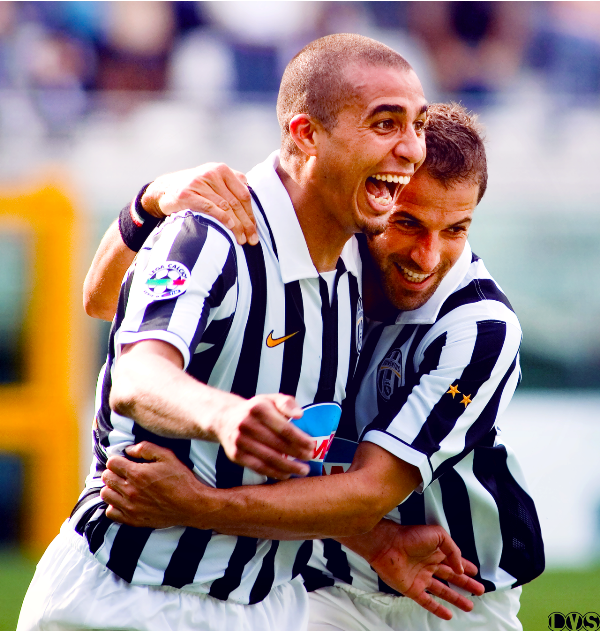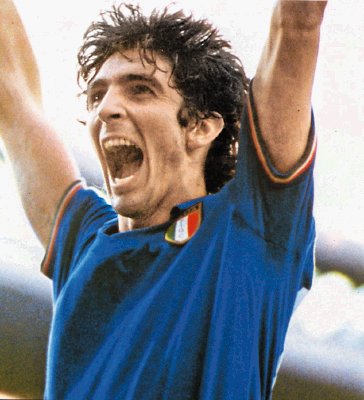Gianluigi Buffon: a goalkeeper must be a masochist and egocentric
Gianluigi Buffon has some advice for would-be goalkeepers. “Change. Don’t be a keeper,” he laughs. The Italy and Juventus captain is being playful, perhaps a touch provocative, but this is no joke. “It’s true,” Buffon persists. In hindsight perhaps he would have resisted the urge he felt nearly a quarter of a century ago to pull on a pair of gloves after watching the opening game of Italia 90 when Cameroon shocked the holders Argentina at San Siro.
Until then the 12-year-old Buffon had played in midfield for Perticata, a satellite club of Internazionale in his home town of Carrara. His role models were Marco Tardelli and Nicola Berti, players who got forward and found the back of the net regularly. “Every kid thinks about scoring rather than not conceding,” Buffon says. But on following Cameroon he began to think differently. “After Italy, they were the team I supported [at the World Cup]. They were my football heroes.”
One of their number in particular captured his imagination. It was the goalkeeper Thomas N’Kono, after whom Buffon would later name his first child Louis Thomas. Observing him dash off his line in that grey and yellow striped shirt and black trousers to punch the ball 30 or 40 yards excited Buffon. His papa, Adriano, whose father’s second cousin was Lorenzo Buffon, a goalkeeper for Milan in the 50s, had already been pushing him to try playing in goal. He had noticed certain attributes in his son that were not best exploited in midfield.
Strong hands and arms ran in the Buffon family. Adriano represented Italy in the shot put. “My mother [Maria Stella] was a discus thrower,” Buffon says. “She held the Italian record for 17 years.” His older sisters Guendalina and Veronica were champion volleyball players. “I followed tennis a little,” Buffon adds. “I liked Lendl, Edberg and Rafter.” And so perhaps it was entirely natural for him to find a role within football that was not restricted to feet.
Buffon still claims it was “all a little by chance”. Had it not been for “the desire to emulate N’Kono” who knows what he would have become. Why, then, caution others from acting on a similar impulse to the one he felt in 1990 when watching the World Cup this summer? Just to be clear Buffon is not discouraging anyone from going in goal. He is merely preparing them for the reality. Goalkeeping may look like fun. It can be a joy to behold. But you also regularly expose yourself to pain.
“In the end, you need to be a little masochistic to be a goalkeeper,” he says. “A masochist and egocentric as well. A masochist because when you play in goal, you know the only certain thing in life is that you will concede goals. And you also know that conceding goals is not something that brings you happiness … Unless,” he guffaws, “your masochism is actually a perversion, then that’s different.”
It is a punishing, torturous profession. In contrast with their team-mates, goalkeepers cannot make amends for their mistakes by going up to the other end and scoring. There are exceptions, such as Buffon’s predecessor at Juventus, Michelangelo Rampulla and the South American free-kick and penalty-taking keepers José Chilavert andRogério Ceni. But the rule tends to be a helpless anguish. Commit an error then expect to be put on the rack and have game pulled apart by pundits who often do not have the faintest idea what they are talking about.
This is a source of irritation for Buffon. How often is a goalkeeper part of a TV match analysis panel? They are a minority among pundits. The only high profile one active in this country that springs to mind is David James. And more often than not he is asked for a general overview of the game rather than a specific insight into the decision-making of a keeper.
“The role of a goalkeeper is difficult to judge,” Buffon says, “above all if you haven’t been a goalkeeper. It’s like me giving an opinion on someone’s job without having had any experience in their sector. You start to realise how many stupid things are said and written about goalkeepers.” For instance, why the goalkeeper did not come out. Buffon used to do this a lot. It is enough to recall his extraordinary debut as a 17-year-old for Parma against Milan on 19 November, 1995. Twice he sprinted off his line to deny a pair of Ballon d’Or winners, Roberto Baggioand George Weah.
“The ball is now a lot quicker than before,” he says. New materials have enhanced its velocity and made it more volatile. There is triple jeopardy, too, which discourages risk-taking: a foul committed inside the box by a goalkeeper can result in a penalty, a red card and a suspension.
It is a rule Buffon called “inhumane” in an interview with Il Corriere dello Sport last year, proposing that the denial of a clear goalscoring opportunity should warrant a yellow card for the first 70 minutes and only after that be considered a dismissible offence.
A grasp of the dimensions in which goalkeepers work would not go amiss either when assessing their choices. “Often there are fallacies when a journalist or a fan and sometimes even a coach who has never been a goalkeeper sees a cross in the six-yard box and says he should come out. You laugh because you understand how much bullshit is said.
“The first question I ask people is: do you know how big the six-yard box is for a keeper stood on his line? And no one knows … It’s 100m² – that’s the same as a two-room flat or a bar, a bit like where we are now [a vast conference room in a Turin hotel]. God only knows how many metres cubed it is. So you see how little understanding there is, and how little desire to get informed, and to take that into consideration. But that’s the way the world is.”
Goalkeeping has also evolved over the last couple of decades. Goalkeepers have become less different and more homogeneous, more total. “They have to play for the team,” Buffon says. “Sometimes they also have to play out and start a move or a scheme with their feet. It’s a lot more involved.” And that is not without complications. The more you have to do, the more likely you are to make mistakes.”
A greater emphasis on this aspect, he argues, has come at the neglect of other fundamentals. The question, how good is he with his feet, perplexes Buffon. Surely it should be, what are his hands like? After all, their use separates goalkeepers from the other players on the pitch. Instead of changing for the better, Buffon believes the craft might have regressed. “In my opinion there are fewer and fewer great goalkeepers,” he says, “because with respect to when I started they have to do so much more compared with in the past.”
That said, there are still a number, after Iker Casillas, who can count on his respect and admiration. “Right now there’s Manuel Neuer. He’s definitely a very good keeper. There’s Joe Hart too. But the youngster I like a lot,” he nods in approval,” is the Belgian, Thibaut Courtois. I like him a lot.”
All will be at the World Cup. For Buffon, a winner in Germany eight years ago when he conceded only twice – letting in a Cristian Zaccardo own goal and a Zinedine Zidane penalty – Brazil will be his fifth consecutiveMondiale, a record he shares with the former Mexico goalkeeper Antonio Carbajal and the Germany midfielder Lothar Matthäus.
Italy’s all-time appearance leader goes into the tournament on the back of a historic season at Juventus. The Old Lady won a third straight Scudetto for the first time since 1933, becoming the first team to break the 100-point barrier in Serie A. Buffon, as ever, proved decisive. At 81.1%, the 36-year-old’s shot-to-save ratio was the highest in the league. His denial of Emanuele Calaiò from the penalty spot and Andrea Pirlo’s last minute free-kick to clinch a 1-0 win away at Genoa in mid-March has been held up as the moment Juventus realised they would be able hold off the challenge from Roma and retain their title.
Much of the credit has again gone to their hirsute regista. “Pirlo is a genius,” Buffon says. “Together with Baggio, I think he’s the greatest talent that Italian football has produced in the last 25 years. You can try and adopt the right countermeasures to contain him. But you know that in any given moment he can break the bank and everything you thought you knew [about stopping him] is worthless.”
England need no warning. The Euro 2012 quarter-final was a Pirlo masterclass, the most one-sided 0-0 in recent memory decided by his devastating momentum-changing Panenka in the shootout.
Looking ahead to their next encounter in Manaus on 14 June, Buffon downplays its significance. “It’s the first game,” he says. “Then there’s another two. It’s an important game. Not a play-off.” Aside from a 1-0 defeat by the England Under-21s at Ashton Gate in 1997, when Buffon slid to prevent a corner and ended up in the advertising hoardings allowing Darren Eadie to score the only goal of the game – his “biggest howler” – he has never lost to the senior team. “Nor against Germany,” he adds with great conviction. “I’ve played them five times and never been beaten.” Here Buffon pauses to dramatic effect. Then, after a beat, he shrugs and says: “Capita! It happens!” As if it is nothing. And you remember again exactly why they call him Superman.





